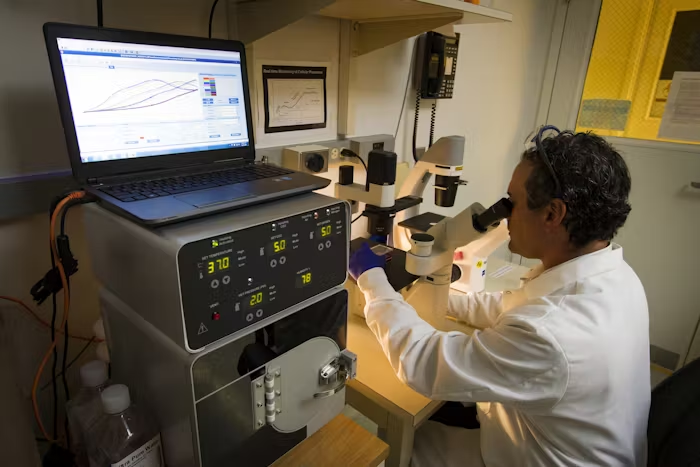In a world increasingly shaped by technology, smart home innovations have emerged as a transformative force, reshaping how we live, work, and interact with our environment. From smart thermostats that optimize energy usage to voice-activated assistants that respond to our every whim, smart home tech offers unparalleled convenience, efficiency, and security. But its impact goes far beyond these features — it is redefining the essence of modern living.
This article dives into how smart home technology is revolutionizing everyday life, examining its benefits, challenges, and the exciting future it promises.
Convenience: Life at Your Fingertips
Imagine controlling your entire home with a few taps on your smartphone or a simple voice command. Smart home tech makes this a reality. Devices like Amazon Echo, Google Nest, and Apple HomeKit allow seamless integration of multiple gadgets, enabling users to:
- Adjust lighting: Smart bulbs like Philips Hue let you change brightness, color, and ambiance.
- Control temperature: Thermostats such as Nest and Ecobee learn your schedule, optimizing heating and cooling to save money and energy.
- Manage appliances: Smart plugs and switches allow remote control of devices like coffee makers, ovens, and even washing machines.
By automating mundane tasks, these technologies free up time, helping individuals focus on more meaningful activities.

Enhanced Security and Peace of Mind
Safety is a cornerstone of smart home innovation. With devices like Ring doorbells, Arlo cameras, and smart locks, homeowners can monitor their property in real-time from anywhere. Key features include:
- Remote monitoring: View live feeds of your home through smartphone apps.
- Smart locks: Grant access to family members or service providers without physical keys.
- Motion detection: Advanced sensors alert you to suspicious activities, reducing the risk of burglary.
These technologies not only enhance security but also provide peace of mind, making it easier to leave home for extended periods.
Energy Efficiency: Saving Money and the Planet
Smart home tech contributes significantly to energy conservation. According to a study by the American Council for an Energy-Efficient Economy (ACEEE), smart thermostats alone can save users up to 10% on energy bills annually. Other eco-friendly features include:
- Smart sprinklers: Automatically adjust watering schedules based on weather conditions.
- Energy tracking: Devices like Sense Energy Monitor analyze power consumption, identifying areas for improvement.
- Solar integration: Smart systems can optimize energy use by syncing with solar panels.
By reducing waste and encouraging sustainable practices, smart home technology aligns personal savings with environmental responsibility.
Personalized Living Spaces
The beauty of smart home tech lies in its ability to adapt to individual preferences. For instance:
- Music and entertainment: Platforms like Sonos and Alexa allow personalized playlists to follow you from room to room.
- Smart beds: Products like Sleep Number adjust firmness and temperature based on sleep patterns.
- Wellness tracking: Devices such as smart mirrors and scales provide insights into health metrics, enabling users to make informed lifestyle choices.
This level of customization transforms homes into sanctuaries tailored to unique needs and lifestyles.
Challenges to Overcome
Despite its many advantages, smart home technology comes with challenges.
- Privacy Concerns
As homes become more connected, they also become more vulnerable to cyber threats. Hackers can exploit security loopholes to access personal data or control devices. Manufacturers must prioritize robust encryption and regular software updates to address these risks. - Cost Barriers
The initial investment in smart home tech can be daunting. While long-term savings often justify the expense, affordability remains a concern for many consumers. Industry leaders must explore ways to make these innovations accessible to a broader audience. - Compatibility Issues
With numerous brands offering smart devices, ensuring seamless integration can be tricky. Standardized protocols and partnerships between manufacturers are essential to simplify the user experience.
Future Trends in Smart Home Technology
As technology evolves, smart homes will become even more intuitive and integrated. Emerging trends include:
- Artificial Intelligence (AI): AI-powered assistants like ChatGPT are expected to take personalization to new heights, understanding user needs and automating complex tasks.
- Internet of Things (IoT): Enhanced connectivity between devices will lead to smarter ecosystems, from interconnected kitchens to self-maintaining gardens.
- Augmented Reality (AR): AR could revolutionize home design, allowing users to visualize changes before making physical adjustments.
- Smart neighborhoods: Beyond individual homes, entire communities may adopt smart technologies to improve shared spaces, reduce energy consumption, and enhance connectivity.
The Social Impact of Smart Homes
Beyond individual households, smart home tech has broader implications for society.
- Aging in Place
For older adults, smart home technology offers tools to maintain independence. Devices like fall detectors, medication reminders, and voice-controlled assistants provide critical support, enabling seniors to age comfortably in their homes. - Inclusive Living
Smart homes also enhance accessibility for individuals with disabilities. Features like voice control, automated doors, and customized lighting make everyday tasks more manageable, fostering greater autonomy. - Community Engagement
Shared technologies such as community-wide energy monitoring systems or security networks can strengthen neighborhood ties and promote collective well-being.
Tips for Getting Started with Smart Home Tech
If you’re new to smart home technology, start small and scale up:
- Identify your needs: Focus on areas like security, energy efficiency, or convenience to determine which devices align with your goals.
- Choose compatible products: Opt for devices that integrate seamlessly within your existing ecosystem, whether it’s Amazon Alexa, Google Assistant, or Apple HomeKit.
- Research reviews: Prioritize well-reviewed products with strong customer support and regular software updates.
- Set a budget: Begin with cost-effective options like smart plugs or bulbs before investing in more advanced systems.
Smart home technology is no longer a futuristic concept; it is a present-day reality reshaping the way we live. By offering unparalleled convenience, enhancing security, and promoting sustainability, these innovations create homes that are more efficient, personalized, and connected.
However, as the industry grows, addressing challenges like privacy, cost, and compatibility will be critical to ensuring that smart homes benefit everyone. Whether you’re tech-savvy or a newcomer, embracing smart home technology can unlock a world of possibilities, transforming your living space into a hub of innovation and comfort.
With its potential to revolutionize daily life, smart home technology is not just about gadgets — it’s about creating a better, smarter future for all.














